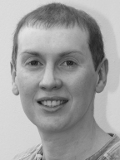GOTO is a vendor independent international software development conference with more that 90 top speaker and 1300 attendees. The conference cover topics such as .Net, Java, Open Source, Agile, Architecture and Design, Web, Cloud, New Languages and Processes
Martin Thompson, TweetCTO and co-founder of LMAX

Biography: Martin Thompson
Martin has had a passion for pushing software and electronics to the limit since childhood. He was the type of kid who took the video recorder apart and then fixed it. Since then he has always been attracted to business problems where high performance computing can open new, previously impossible, opportunities. Ranging from stock market data feeds to PCs as in the early 90s, working on the first generation of internet banks, implementing the largest product content management systems, working on the worlds largest sports betting exchange (Betfair) and now founding LMAX. Martin brings his mechanical sympathy for the hardware that it runs on, to the software that he creates, which has taken him deep into the subjects of concurrency and parallel computing. Martin is the co-founder and CTO of LMAX where he leads the building of the world’s highest performance financial exchange using a radical new architecture that takes it all back to basics.
Twitter: @mjpt777
Video presentations: 4 Years of living Continuous Delivery - TDD of a business plan
Presentation: TweetTackling the folklore surrounding high performance computing
Building a high performance financial exchange is tough, especially when you're flying in the face on conventional wisdom. In this case it is widely assumed that it's not possible to build a high throughput near real-time system in Java. Over the past 4 years our experience of building LMAX, the world's first multi-asset financial exchange, we've learnt that much of what the industry believes about computer performance is based on folklore.
Using evidence and experience from solving real world problems, this talk aims to dispel some these performance myths. We will cover a number of areas of software development including distributed systems, concurrency and parallelism, I/O, algorithms, garbage collection, and memory efficiency.
We need to reintroduce the science into computer science and stop depending on mythology, technology is changing and mythology is not keeping up.
